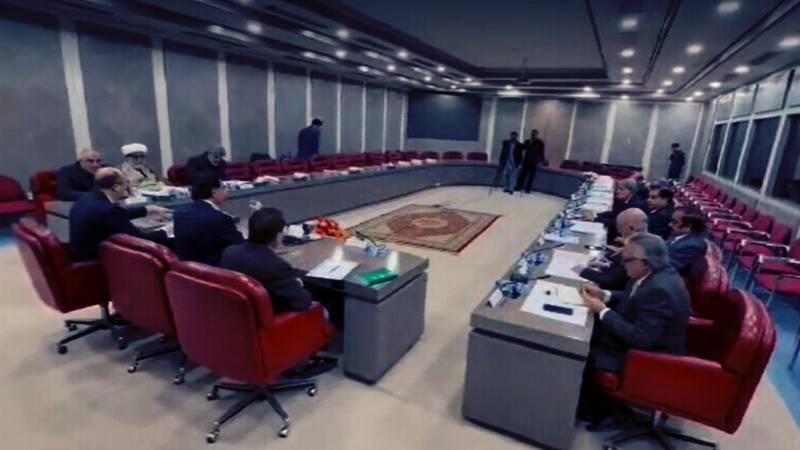
The government and Pakistan Tehreek-e-Insaf (PTI) will hold the second round of talks on Thursday.
The meeting of the negotiation committees from both sides, which was originally set for 11 AM today, has been rescheduled to 3:30 PM. The spokesperson for the National Assembly said that the change in timing was requested by the committee members.
National Assembly Speaker Ayaz Sadiq will chair the meeting, which will take place in the Parliament House’s Constitution Committee Room. Sadiq is leading the talks between the government and PTI.
The opposition party, PTI, has made it clear that it will demand the release of PTI prisoners and the formation of a judicial commission to investigate the incidents related to the protests on May 9 and November 26.
In the meantime, Khyber Pakhtunkhwa Chief Minister Ali Amin Gandapur said on Wednesday that if the talks with the government do not succeed, PTI is ready to launch a protest movement.
Speaking to a private TV channel, Gandapur explained that PTI’s founder had given party leaders permission to negotiate with the government, but only for the country's sake. He added that while PTI was open to talks, the party would not hesitate to start a movement if its demands were not addressed.
Gandapur listed the main demands, including the release of PTI’s founder and other party leaders, as well as political prisoners. He also reiterated his demand for a commission to investigate the violent events of May 9 and November 26. He expressed hope that 2025 would be the year of "real freedom" for the country. The chief minister emphasized that PTI’s movement would rely on public support, not foreign backing.
On the other hand, Defence Minister Khawaja Muhammad Asif urged PTI leaders to focus on the national interest and avoid attacking the country’s security institutions. Speaking to a private news channel, Asif said PTI had been involved in the May 9 riots, and this must not happen again. He added that the government started the dialogue process with PTI for the sake of political stability, which is necessary for the country’s economic growth and achieving export targets.
